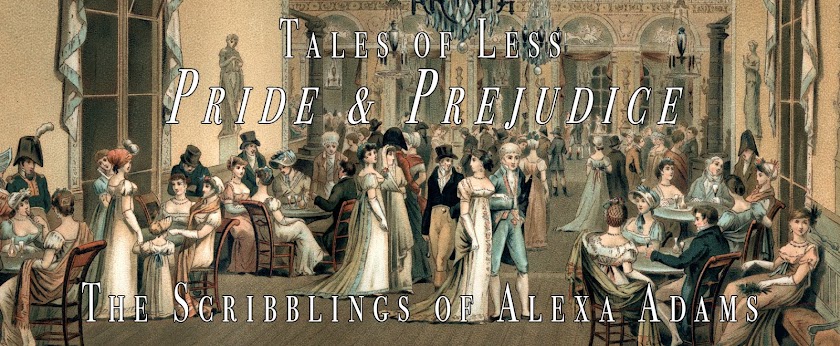 |
| Mother Ann Lee |
I must first and foremost note that the visitor experience to Shaker Village has altered greatly since I was first there in 2008. The tours are now almost entirely self-guided, a COVID Era innovation, I assume, with the aid of an app. I always find it a little disconcerting utilising such technology in historic preservation locals, but such is our world.
There are still live presentations by the staff, and the quality of the two I enjoyed remained excellent. One was a repeat of my favorite "adventure" on my prior visit: Shaker Music in the Meetinghouse. This was led by a different woman than last time, but I was equally impressed with the mighty voices of both, beautifully demonstrating the fabulous acoustics of the room. There were not many attendees on a rainy Tuesday morning (this was the week of this summer's Kentucky floods), only ourselves and two other people. The leader was great, incorporating my restless four year old into a demonstration of a children's dance, and providing a lot of fun facts I did not previously know, like anecdotal evidence that the Shakers could be heard seven miles away, where their stomps sounded like gunshots (to view a reenactment of a Shaker meeting, please see my previous post), and stories of just how disruptive the Shakers were in merry old England before immigrating to the American colonies shortly before the Revolutionary War.
Readers of Austen should have great appreciation for stories of Mother Anne Lee, considered their messiah by members of the United Society of Believers in Christ's Second Appearing, which is the proper name for those now commonly known as Shakers. Imagine a very orderly Church of England Sunday service, the likes of which any of the many clergymen in Austen's novels might have led, being invaded by Mother Anne and her followers, determined to disrupt and shout over the proceedings to their best ability. Can't you just see Mr. Collins' befuddlement and Lady Catherine's outrage? I had to laugh.
These anecdotes aside, what most impressed me was how the speaker, a Black woman, handled a very uncomfortable moment with one of the other attendees. The person had asked how the Shakers handled slavery, a very reasonable question. A cautious but rehearsed reply was provided, detailing the mixed legacy of the Shakers on this subject, who were implicitly anti-slavery but nevertheless participated in the local, slave-owning economy. The community had lots of seasonal visitors, perhaps particularly during the Civil War. Some of these needed food and shelter, but others were contemplating joining the Shakers. This required giving up all your personal possessions to the community, who freed all slaves acquired in this manner. The questioner replied: "Oh, that's a real hardship."
I think my jaw dropped. I was prepared for the atmosphere in the United States to have changed (it was already well on its way) over the course of the pandemic and following the reinvigoration of the Black Lives Matters movement due to the horrifying deaths of Ahmaud Arbery, Breonna Taylor, George Floyd, and way, way too many others. And yes, I grew up in a progressive bubble, but I have rarely in my life heard anyone indulge in such blatant racism, particularly in a public venue. Racist expressions, when I did encounter them, were whispered in low voices, because the speaker knew they were shameful. Not that it really makes it any better, but they weren't voiced loudly, in a room with booming acoustics, nor directly addressed to a person who would obviously feel the sting of the words. I spent many years debating political correctness, rightly calling out that it just hid the harm and didn't address it, but I guess it did at least it provided some standard of decent conduct.
My shock aside, what really hit me was how often the presenter must have heard something just like it. She paused but a moment, presumably choking down the hurt, and proceeded on with her delivery. I followed her lead, and bit down my urge to call the person out. It was surely the pragmatic and safest way to respond. But what does that do to a person to have to live with such normalized, casual wounds? I felt these tensions in smaller, less dramatic ways throughout the trip. I read the political signs throughout the country with both hope and horror. I felt the pain of the attacks on my own non-binary kid, in anti-LGBTQ+ billboards and t-shirts, and pride in displays of inclusivity and acceptance. There is a real fight for human liberties underway, and I have to celebrate that, because I want to live in a world where everyone is treated with the respect and dignity they deserve, but the reaction scares me, as is intended.
Though I laughed at her tactics, Mother Anne was amazingly brave.
Later that morning, as we sat down for lunch at the village restaurant, featuring food sourced form their own organic farm (another great tour, if hot in summer), I filled my kids' and mother-in-;aw's ears with my repressed anger and indignation. After summarily denouncing the questioner and having a good, indignant rant, I concluded with the thought, "I bet she's sitting right behind me, isn't she?" I turned around, and sure enough, there she was. What can you do but laugh?
'Tis a gift to come down where we ought to be.
